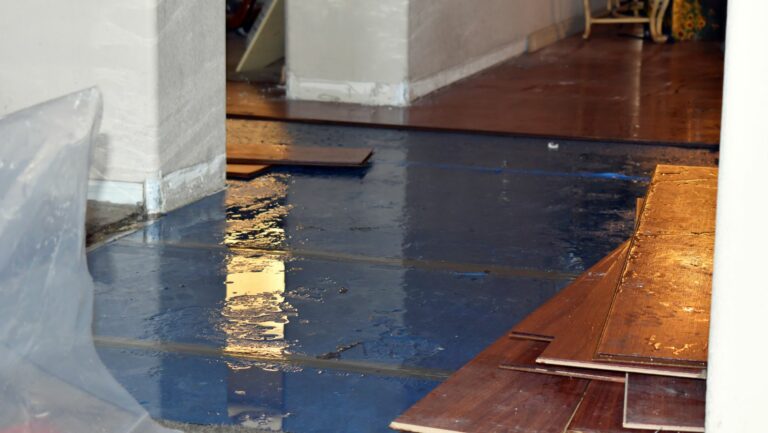Picture this: you’ve just moved into your new place, and that sleek sofa from Buddy Home Furniture is the centerpiece of your living room. But what happens when the return date sneaks up on you faster than your last pizza delivery? Ignoring those pesky deadlines might seem harmless, but it could land you in a sticky situation—one that involves more than just a stern talking-to.
Table of Contents
ToggleOverview of Equipment Rental Agreements
Rental agreements for equipment detail the obligations of both the rental company and the borrower. Understanding these terms helps prevent misunderstandings and legal complications.
Understanding Rental Terms
Rental agreements outline key aspects, such as rental duration, payment schedules, and return deadlines. A borrower must know the specific terms that apply to the rented equipment. These terms often include late fees for overdue returns. Companies typically emphasize the importance of timeframes. They may also include consequences for damage or loss. Clarity on these points ensures the borrower fully understands responsibilities.
Responsibilities of the Borrower
The borrower must ensure the equipment remains in good condition during the rental period. Returning items on time prevents additional fees or potential legal actions. Notifying the rental company about any issues with the equipment is critical. Accepting liability for damages until the equipment is returned emphasizes the borrower’s role. Following the return process as outlined in the rental agreement protects the borrower from penalties. Adhering to these responsibilities benefits both the borrower and the rental company.
Legal Consequences of Not Returning Equipment
Failing to return equipment from Buddy Home Furniture carries serious legal ramifications. Understanding these consequences is crucial for every borrower.
Potential Criminal Charges
Borrowers can face criminal charges for not returning rented equipment. The severity of the charge often depends on the rental value. Misdemeanor charges can apply for items valued under $500, with penalties including fines and up to one year in jail. Felony charges may arise for higher-valued equipment, leading to longer prison sentences, often exceeding one year. Criminal intent plays a role; failure to return an item without intention to steal might mitigate the situation. Ignoring rental agreements can result in prosecution, prompting legal concerns that extend beyond financial penalties.
Civil Liability
Civil liability may occur alongside criminal charges. Rental companies can pursue damages for unpaid rentals, late fees, or lost items. The total amount owed includes the original rental price, accrued late fees, and replacement costs for unreturned equipment. Borrowers might find themselves in court if disputes arise over the rental agreement. Many companies opt for lawsuits to recover significant losses. Securing legal representation often proves beneficial to navigate these situations, ensuring rights are protected and legal obligations addressed.
Factors Influencing Sentencing
Different factors influence sentencing for not returning equipment from Buddy Home Furniture. Understanding these factors can help borrowers be aware of potential consequences.
Value of the Equipment
The value of the equipment plays a significant role in determining the severity of charges. Items valued under $500 typically result in misdemeanor charges, while higher-valued equipment may lead to felony charges. For instance, if a borrower keeps a designer sofa worth $1,200, they may face more severe penalties than if they don’t return a chair valued at $300. Legal categories differ, impacting both sentencing and potential fines. Courts often consider the item’s rental price and condition for any damages claims made by the rental company.
Previous Offenses
A borrower’s criminal history can heavily influence sentencing outcomes. Previous offenses may result in harsher penalties or increased scrutiny. For individuals with prior convictions, particularly related to theft or fraud, judges typically impose stricter sentences. Each case undergoes review to assess patterns in behavior and intent. Courts may view a history of similar crimes as evidence of intent, further impacting charges. Multiple offenses can lead to longer jail sentences and additional fines, reflecting the judicial system’s approach to repeat offenders.
Alternatives to Jail Time
Exploring alternatives to jail time can lead to more constructive outcomes for those who fail to return equipment from Buddy Home Furniture. Various options exist for addressing such situations without incarceration.
Restitution and Fines
Restitution ensures that borrowers compensate the rental company for any losses. Courts typically impose fines alongside or instead of jail time. Depending on the value of the equipment, these fines can vary. For items under $500, fines often are lower, while higher-valued items result in steeper penalties. Courts may take into consideration a borrower’s willingness to pay as a factor in sentencing. Demonstrating good faith efforts in returning items may reduce overall financial liability. Engaging in open communication with the rental company can lead to more favorable outcomes.
Community Service Options
Community service provides an alternative that can benefit both the borrower and the community. Courts may require offenders to complete a certain number of hours when facing charges for not returning equipment. Options include volunteering at local organizations or participating in neighborhood clean-up initiatives. Successful completion of community service often showcases the borrower’s commitment to making amends. Positive contributions may influence the judge’s decision in future cases as well. Engaging in community service also fosters a sense of responsibility and can help rebuild reputations.
Navigating the complexities of equipment rental agreements is crucial for borrowers. Failing to return items can lead to serious legal consequences including potential jail time. Understanding the rental terms and maintaining open communication with the rental company can help avoid complications.
Borrowers should be aware of their responsibilities and the implications of their actions. By prioritizing timely returns and addressing issues proactively, they can mitigate risks and protect themselves from legal repercussions. Exploring alternatives to jail time such as restitution and community service can also provide pathways to resolution. Ultimately, being informed and responsible is key to a smooth rental experience.



